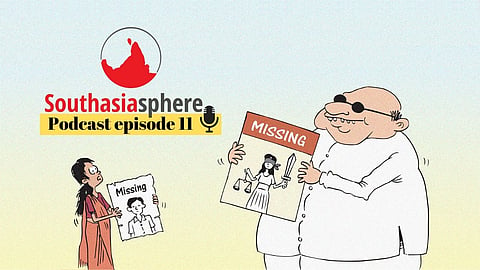Escalating conflict in Myanmar, enforced disappearances in Southasia, ‘Witnesses to History’, and more.
Southasiasphere is our monthly roundup of news events and analysis of regional affairs. If you are a member, you will automatically receive links to the new episodes in your inbox. If you are not yet a member, you can still get it for free by signing up here.
In this episode, we focus on some key developments in Myanmar and the history of enforced disappearances across the region. In Around Southasia in 5 minutes, we look at Democracy Day in Tibet, Bangladesh's ban on PubG and other online games, the Taliban's takeover of Afghanistan, and the fate of the Millennium Challenge Corporation in Nepal. Plus, in our culture section Bookmarked, we talk about 'Witnesses to History', a new podcast series featuring oral historians, architects, foodies giving insight into archives of Sri Lanka's past, investigative reporter Josy Joseph's new book The Silent Coup, and the recent removal of texts by Mahasweta Devi and two Dalit writers from the Delhi University syllabus.

